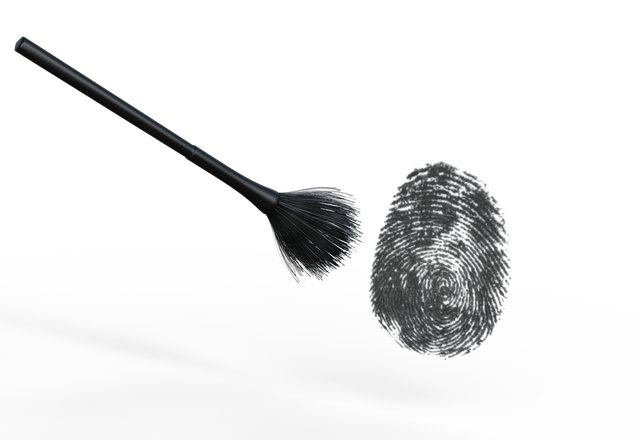In today's corporate landscape, integrity and accountability are paramount. C-level investigations uncover misconduct, leading to class action lawsuits and significant compensation. These inquiries involve legal strategies, compensation from class action suits for victims, and deterrents for future unethical actions. Top executives face heightened scrutiny, requiring robust criminal defense and internal controls. Legal experts navigate complex processes, ensuring fair settlements and protecting organizational reputation. Successful agreements provide justice and financial redress while promoting improved corporate governance.
In recent times, C-level investigations have gained significant traction as a means to uncover wrongdoings and hold top executives accountable. These probes, delving into the highest echelons of corporate leadership, are transforming the landscape of corporate governance. With an increasing focus on transparency and justice, class action lawsuits have emerged as a powerful tool for victims seeking compensation from class action lawsuits. This article explores these trends, delving into the processes, legal intricacies, and impact of such investigations, including the role of settlement agreements in rewarding affected parties.
- Uncovering Wrongdoings: C-Level Investigations Initiated
- Class Action Lawsuits: A Path to Compensation
- Corporate Accountability: When Top Executives Face Scrutiny
- Navigating Legal Complexities: Investigating High-Level Claims
- Rewarding Victims: The Impact of Settlement Agreements
Uncovering Wrongdoings: C-Level Investigations Initiated
In today’s complex corporate landscape, ensuring integrity and accountability is paramount. C-level investigations initiated by organizations play a pivotal role in uncovering wrongdoings, especially in cases of white collar defense. When misconduct surfaces, be it financial fraud, breach of fiduciary duty or violation of regulatory norms, these inquiries are critical in determining liability and potential compensation from class action lawsuits.
The process involves meticulous navigation through intricate financial records, legal documents, and communication channels to unearth evidence. A complete dismissal of all charges is the ultimate goal for any respective business, demonstrating not just compliance but also a commitment to ethical conduct. These investigations are not merely about punishment but also serve as deterrents, fostering a culture of transparency and responsibility across all levels of an organization.
Class Action Lawsuits: A Path to Compensation
When a company faces a class action lawsuit, it’s not just about legal battles; it’s a complex process designed to offer compensation from class action lawsuits to affected individuals. These suits, targeting large-scale issues like wage theft or environmental damage, can lead to substantial financial relief for the victims. The respective business is often required to pay damages, restitution, and attorney fees, ensuring that those harmed receive fair compensation.
This process involves meticulous legal strategies, particularly in the realms of white collar defense and general criminal defense. Skilled attorneys navigate intricate regulations and precedents to build robust cases, aiming to secure the best possible outcomes for their clients. Ultimately, successful class action lawsuits not only provide financial compensation from class action lawsuits but also serve as a powerful deterrent against future misconduct.
Corporate Accountability: When Top Executives Face Scrutiny
In today’s corporate landscape, where every decision carries significant weight, top-level executives are increasingly facing scrutiny under intense public and legal observation. C-level investigations have become a powerful tool for holding businesses and their leaders accountable, especially in cases involving complex financial matters. When allegations of misconduct surface, whether it’s accounting fraud or breaches of fiduciary duty, the respective business must prepare for potential consequences that can extend far beyond the boardroom.
Corporate accountability is not merely about maintaining public image; it involves ensuring that top executives are held responsible for their actions. These investigations often lead to substantial compensation from class action lawsuits, reflecting the need for robust general criminal defense strategies. The impact of these probes can be felt in the form of regulatory changes and heightened legal standards, pushing companies to establish more stringent internal controls. Moreover, jury trials have emerged as a critical component of this process, providing a platform for exposing truths and delivering justice.
Navigating Legal Complexities: Investigating High-Level Claims
Navigating legal complexities is a critical aspect of investigating high-level claims, especially in the realm of C-Level investigations. When dealing with accusations that could lead to significant compensation from class action lawsuits, understanding the intricacies of the law becomes paramount. High-stakes cases often involve complex financial transactions and intricate corporate structures, requiring meticulous attention to detail. The legal landscape is further complicated by the need for careful consideration of federal and state regulations, as well as international laws in some instances.
In these situations, experienced professionals, including white collar defense attorneys, play a pivotal role in guiding organizations through the labyrinthine process. Their expertise helps companies avoid indictment and potential financial burdens associated with class action lawsuits. By employing strategic legal tactics, they ensure that investigations are comprehensive, fair, and compliant with all applicable laws, ultimately protecting both the organization’s reputation and its financial interests.
Rewarding Victims: The Impact of Settlement Agreements
When a C-Level investigation leads to a settlement agreement, one of the most significant aspects is the impact it has on rewarding victims. These agreements provide a form of compensation from class action lawsuits, offering a measure of justice for those affected by the misconduct. The process involves careful negotiations between legal representatives and corporate entities, ensuring that white collar defense strategies are employed to protect both the company and its corporate and individual clients while also delivering a fair outcome for the victims.
Successful settlement agreements not only provide financial compensation but also serve as a powerful tool in deterring future misconduct. They send a clear message that such actions will not be tolerated, fostering a culture of accountability within organizations. This, in turn, can lead to enhanced corporate governance and better practices, ensuring that similar challenges are met with winning challenging defense verdicts in the future.
C-level investigations are a powerful tool for holding corporate leaders accountable and ensuring justice. By delving into complex legal territories, these inquiries facilitate the process of compensation from class action lawsuits, offering a much-needed reprieve to wronged parties. Through meticulous navigation of legal complexities, settlements can be reached, rewarding victims and fostering corporate accountability on a high level. This conclusion underscores the significance of such investigations in creating a more transparent and just business landscape.






